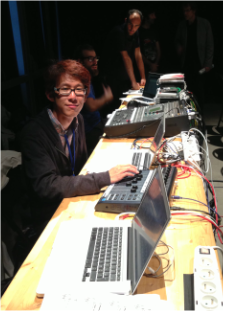"The ear tends to be lazy, craves the familiar and is shocked by the unexpected; the eye, on the other hand, tends to be impatient, craves the novel and is bored by repetition. Thus, average listener prefers concerts confined to works by old masters and it is only the highbrow who is willing to listen to new works, but the average reader wants the latest book and it is the classics of the past which are left to the highbrow." ----- W. H. Auden
It's the laziness. How often do you really listen to a piece of music? Really, I think commercial music has corrupted our sense of listening. Nowadays music lacks harmonic content, dynamic (due to the invention of the compressor, which shall go into my future blog post about mixing/mastering...), rhythmic variety, timbre/color, etc... Many people look for only a nice and loud melody so that they can sing along, and call it expression... When they listen to a Mahler symphony, get overwhelmed, and thus they shut off their ears. Remember, art is about expression and communication...
Everyone in this world with a pair of ears can understand classical music.


 RSS Feed
RSS Feed
